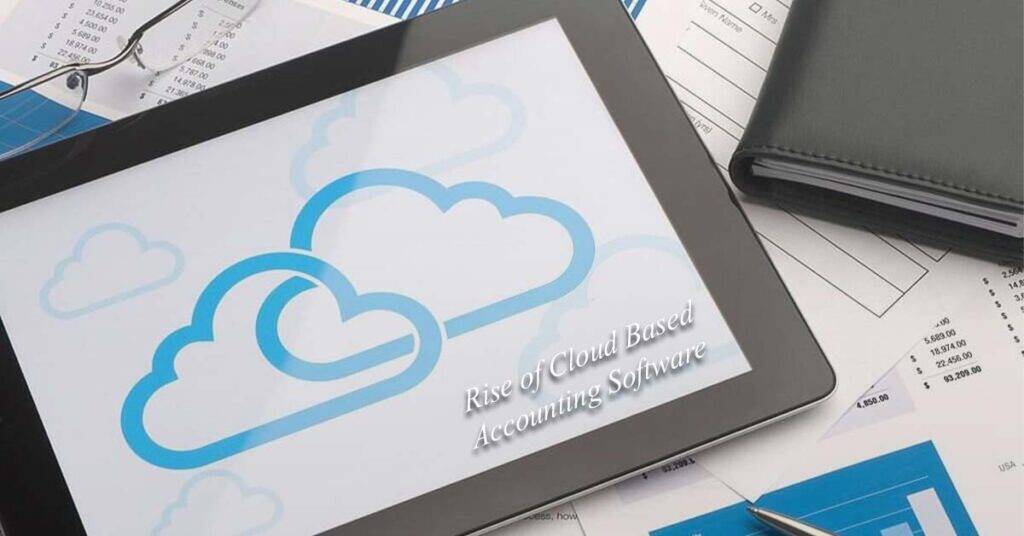In today’s digital age, The way firms maintain their financial records has been changed by cloud-based accounting software. The era of laborious spreadsheets and manual data entry is over.
Accounting software that is hosted in the cloud provides a practical and effective option for companies of all sizes.
This article examines the benefits and issues associated with utilizing cloud-based accounting software, emphasizing how it affects contemporary accounting procedures.
Understanding Cloud-Based Accounting Software
Applications that are housed on distant servers and used online are referred to as cloud-based accounting software. Users can access their accounts through a web browser or specialized application rather than installing the program on each of their PCs. On the cloud servers, the data is safely processed and stored, so there is no need for local installations or manual backups.
Advantages of Cloud-Based Accounting Software
1. Accessibility and Flexibility
Accounting software that is hosted in the cloud provides unmatched accessibility and flexibility. With an internet connection, users may access their financial information from any location, facilitating remote work and cooperation. Businesses can stay productive and make sound financial decisions on the fly because to this degree of flexibility.
2. Cost Savings
Accounting software that is hosted in the cloud provides unmatched accessibility and flexibility. With an internet connection, users may access their financial information from any location, facilitating remote work and cooperation.
3. Real-Time Data Updates
Access to real-time data updates is one of the main benefits of cloud-based accounting software. Data is instantly updated on the cloud servers as transactions are tracked and handled.
This guarantees that firms have access to the most recent financial data, facilitating quick decision-making and lowering the possibility of human error during manual data entry.
4. Enhanced Security
Strong security measures are used by cloud-based accounting software vendors to protect sensitive financial data. These safeguards frequently include multi-factor authentication, data encryption, regular backups, and specialized security teams.
Cloud servers offer a higher level of security than local servers since they are often housed in secure data centers with both physical and digital security measures in place.
5. Scalability
Accounting software that is hosted in the cloud is extremely scalable, meeting the needs of expanding enterprises. Cloud-based SaaS solutions are highly adaptable to changing needs, regardless of whether a business grows or shrinks.
Users can modify their subscription plans and add or remove features as necessary to make sure the software meets their company’s present and long-term objectives.
Considerations for Implementing Cloud-Based Accounting Software
While cloud-based accounting software offers numerous advantages, it’s important to consider several factors before implementing such a system.
• Internet Reliability
Businesses must guarantee dependable and fast internet access because cloud-based accounting software depends on internet connectivity. Internet outages or sluggish speeds can make it difficult to access financial information and be productive.
It’s essential to assess the dependability of the internet service provider and have backup plans ready to go to prevent disruptions.
• Data Ownership and Privacy
When implementing cloud-based accounting software, businesses must be aware of the terms of service and the ownership rights to their data. It is crucial to be clear about who owns the data, how it is stored and safeguarded, and any usage restrictions.
Maintaining the security and confidentiality of financial information requires careful consideration of privacy laws and data integrity.
• Integration with Existing Systems
Businesses should evaluate the compatibility of cloud-based accounting software with current systems before using it. Processes can be streamlined and made more efficient through integration with other software programs, such as enterprise resource planning (ERP) or customer relationship management (CRM) systems.It’s crucial to assess integration capabilities and guarantee smooth data transfer between different systems.
• Training and Support
For an accounting software migration to the cloud to be successful, proper training and support are essential. Employees should receive training from their employers so they are familiar with the new system’s features.
It’s also essential to have quick access to dependable customer service to address any problems or worries. The advantages of cloud-based accounting software can be enhanced with the assistance of an experienced support staff.
• Vendor Reputation and Reliability
When choosing cloud-based accounting software, it is crucial to find a renowned and trustworthy vendor. Investigating the vendor’s standing, client testimonials, and duration of service in the field might reveal information about their dependability.
A vendor you choose will be more likely to provide you with continuing support, software updates, and adherence to industry standards and best practices.
Conclusion
The development of cloud-based accounting software has revolutionized how companies handle their financial data. It is a desirable alternative for companies of all sizes due to its benefits, which include accessibility, cost savings, real-time data updates, increased security and scalability. But for implementation to be effective, substantial thought must be given to issues including internet dependability, data ownership and privacy, integration, support and training, and vendor reputation.
Businesses can simplify their financial procedures, increase productivity, and take well-informed decisions that will promote development and success by implementing cloud-based accounting software.
FAQ’s
Yes, businesses that provide cloud-based accounting software implement robust security measures to protect sensitive financial data. To maintain data security, they employ encryption, multi-factor authentication, frequent backups, and secure data centers.
Yes, any device with an internet connection, including computers, laptops, tablets, and smartphones, may access cloud-based accounting software.
You might momentarily be unable to access cloud-based accounting software in the case of an internet outage. To reduce disruptions, it is advisable to have a secondary internet connection or a backup plan.
, a lot of cloud-based accounting software packages allow for connectivity with other corporate software, such as CRM or ERP. Processes are streamlined and seamless data flow is made possible.
Accounting software that uses the cloud might range in price depending on the supplier and the functionality it offers. Businesses typically pay a subscription fee on a monthly or annual basis, depending on their consumption and the plan they have chosen.



